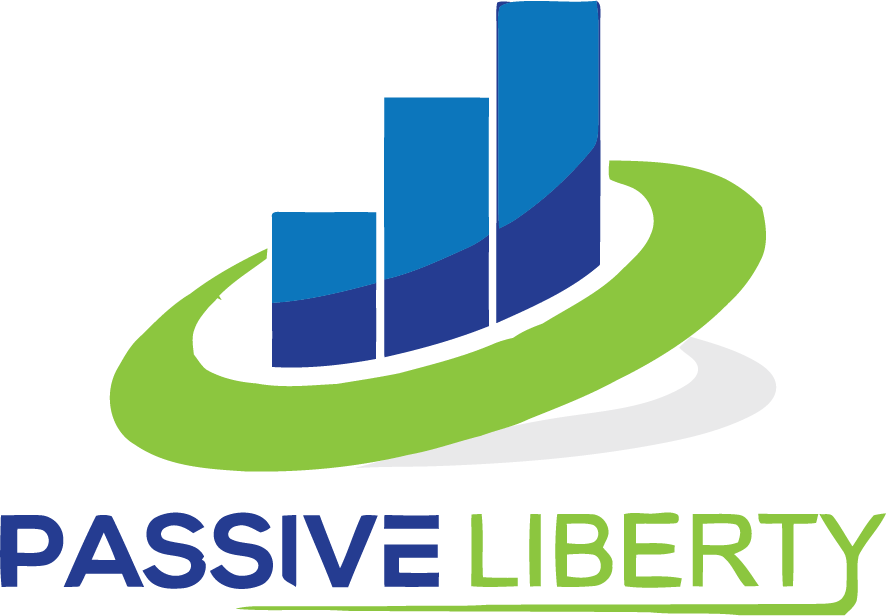Improving your finances doesn’t have to be overwhelming. With a mix of strategic planning, practical changes, and consistent habits, you can achieve financial stability and set yourself up for long-term success. Here are 20 easy ways to improve your finances and take control of your financial future.
Create a Budget and Stick to It
A budget is the foundation of good financial management. It helps you track your income and expenses, ensuring you’re spending within your means.
Steps to Create a Budget:
– Calculate your monthly income.
– List all your fixed and variable expenses.
– Allocate funds for savings and discretionary spending.
– Use tools like Excel, Mint, or YNAB (You Need a Budget) to track spending.
Benefits:
– Reduces overspending.
– Helps prioritize essential expenses.
– Provides a clear picture of your financial health.
Read More: 23 Things You Need to Stop Buying to Save More Money
Establish an Emergency Fund
An emergency fund acts as a financial safety net, covering unexpected expenses like medical bills or car repairs.
How to Build It:
– Set a target amount (3-6 months’ worth of living expenses).
– Start small by saving a portion of each paycheck.
– Keep the funds in a high-yield savings account for easy access.
Why It’s Important:
– Reduces reliance on credit cards or loans during emergencies.
– Provides peace of mind.

Pay Down High-Interest Debt
High-interest debt, such as credit card balances, can drain your finances over time.
Strategies:
– Use the debt snowball method: pay off smaller debts first, then tackle larger ones.
– Try the debt avalanche method: focus on debts with the highest interest rates.
– Consolidate debt with a lower-interest personal loan or balance transfer card.
Benefits:
– Frees up money for savings and investments.
– Improves credit score over time.
Read More: 23 Things You Need to Stop Buying to Save More Money
Automate Your Savings
Automating your savings ensures consistency and reduces the temptation to spend.
How to Automate:
– Set up automatic transfers to a savings account on payday.
– Use apps like Acorns or Digit to save spare change from everyday purchases.
– Contribute regularly to retirement accounts like a 401(k) or IRA.
Why It Works:
– Builds savings effortlessly.
– Ensures you pay yourself first.
Cut Unnecessary Expenses
Review your spending habits to identify areas where you can save.
Tips to Reduce Expenses:
– Cancel unused subscriptions or memberships.
– Cook at home instead of eating out.
– Switch to generic brands for groceries and household items.
– Negotiate bills like cable, internet, or insurance.
Benefits:
– Saves money without significantly impacting your lifestyle.
– Helps you focus on what truly matters.
Increase Your Income
Boosting your earnings can significantly impact your financial situation.
Ways to Earn More:
– Ask for a raise or promotion at work.
– Start a side hustle, like freelancing, tutoring, or selling products online.
– Monetize hobbies, such as crafting or photography.
– Invest in skills that lead to higher-paying jobs.
Benefits:
– Accelerates debt repayment and savings goals.
– Provides additional financial security.
Read More: 23 Things You Need to Stop Buying to Save More Money
Invest in Yourself
Education and skill development can lead to better job opportunities and higher income potential.
How to Invest in Yourself:
– Take courses or certifications in high-demand fields.
– Attend workshops or seminars for personal and professional growth.
– Read books on personal finance, leadership, or entrepreneurship.
Long-Term Benefits:
– Increases earning potential.
– Enhances job satisfaction.
Start Investing Early
Investing helps your money grow over time, thanks to compound interest.
Investment Options:
– Stocks and bonds.
– Mutual funds or ETFs.
– Real estate or REITs (Real Estate Investment Trusts).
– Retirement accounts like 401(k)s or IRAs.
Tips:
– Start with small amounts and increase contributions over time.
– Diversify your portfolio to reduce risk.
– Consult a financial advisor if needed.
Read More: 23 Things You Need to Stop Buying to Save More Money
Track Your Spending
Understanding where your money goes can help you make better financial decisions.
Tools to Use:
– Mobile apps like Mint, PocketGuard, or Personal Capital.
– Keep a spending journal.
– Review bank and credit card statements regularly.
Why It Matters:
– Identifies spending patterns.
– Highlights areas for improvement.

Plan for Retirement
Saving for retirement ensures financial independence in your later years.
Steps to Take:
– Contribute to employer-sponsored plans like a 401(k), especially if there’s a company match.
– Open an IRA (Traditional or Roth).
– Diversify investments to balance risk and reward.
Benefits:
– Provides long-term financial security.
– Takes advantage of compound interest over time.
Read More: 23 Things You Need to Stop Buying to Save More Money
Set Financial Goals
Clear goals give you direction and motivation to improve your finances.
How to Set Goals:
– Use the SMART framework: Specific, Measurable, Achievable, Relevant, Time-bound.
– Break down long-term goals into smaller, actionable steps.
– Review and adjust goals periodically.
Why It Works:
– Keeps you focused and accountable.
– Measures progress effectively.
Read More: 15 Ways to Achieve Financial Freedom
Build Credit Responsibly
Good credit opens doors to better financial opportunities, like lower interest rates on loans.
Tips to Build Credit:
– Pay bills on time.
– Keep credit utilization below 30%.
– Avoid opening multiple credit accounts at once.
– Check your credit report regularly for errors.
Benefits:
– Increases access to financial products.
– Saves money on interest over time.
Read More: 15 Ways to Achieve Financial Freedom
Avoid Lifestyle Inflation
As income increases, avoid the temptation to spend more on non-essential items.
How to Prevent It:
– Stick to your budget.
– Prioritize saving or investing extra income.
– Differentiate between needs and wants.
Benefits:
– Accelerates financial goals.
– Maintains financial discipline.
Shop Smarter
Smart shopping habits can lead to significant savings over time.
Tips:
– Use coupons, cashback apps, or rewards programs.
– Wait for sales or discounts before making major purchases.
– Compare prices online and in-store.
– Buy in bulk for frequently used items.
Why It Helps:
– Reduces expenses without sacrificing quality.
– Maximizes value for money.
Protect Your Assets
Safeguarding your assets ensures long-term financial stability.
Steps:
– Get adequate insurance (health, life, home, auto).
– Create a will and estate plan.
– Keep an emergency fund for unexpected events.
Benefits:
– Provides financial security.
– Protects against significant losses.
Read More: 15 Ways to Achieve Financial Freedom
Declutter and Sell Unused Items
Turn clutter into cash by selling items you no longer need.
How to Do It:
– Identify items to sell, such as clothes, electronics, or furniture.
– Use platforms like eBay, Craigslist, or Facebook Marketplace.
– Hold a garage sale.
Benefits:
– Generates extra income.
– Simplifies your living space.
Review and Adjust Financial Plans Regularly
Life changes, so should your financial plans.
How to Review:
– Set a schedule to evaluate your budget, savings, and investments.
– Adjust for major life events like marriage, children, or career changes.
– Seek professional advice when needed.
Benefits:
– Keeps your finances aligned with current goals.
– Identifies areas for improvement.
Read More: 15 Ways to Achieve Financial Freedom
Practice Gratitude and Contentment
A positive mindset can help you stay focused on your financial goals.
How to Practice:
– Keep a gratitude journal.
– Celebrate small financial wins.
– Focus on experiences rather than material possessions.
Why It Matters:
– Reduces stress and financial anxiety.
– Encourages mindful spending

Financial mindfulness for families
Managing family finances can be overwhelming, but financial mindfulness offers a way to handle money with intention and purpose. By making thoughtful decisions about spending, saving, and investing, families can work together toward long-term financial security.
Foster Open Money Conversations
Financial mindfulness starts with open discussions about money. Regularly talking with your family about finances, setting goals, and making decisions together ensures everyone is on the same page. This approach teaches children important money skills and encourages a sense of teamwork.
Align Spending with Values
A mindful approach means prioritizing your family’s core values. Identify what’s most important—whether it’s education, a home, or travel—and let these values guide your financial choices. Redirecting funds from unnecessary spending to meaningful goals can bring more fulfillment.
Practice Gratitude
Financial mindfulness also involves gratitude. Encourage your family to appreciate what you already have. This can help curb the desire for unnecessary purchases and foster a mindset of contentment, which is key to avoiding financial stress.
Lead by Example
As parents or caregivers, modeling healthy financial habits, such as budgeting and saving, teaches children valuable lessons. Practicing mindful money management as a family helps create a secure financial future and strengthens family bonds.
Read More: 15 Ways to Achieve Financial Freedom
Women and Spending Psychology
Women’s spending habits are often influenced by a combination of emotional, social, and psychological factors. Understanding these influences can help women make more intentional and mindful financial decisions.
Emotional Triggers
For many women, emotions play a significant role in spending. Stress, excitement, or even a desire for comfort can lead to impulsive purchases. Recognizing these emotional triggers is key to avoiding unnecessary spending and ensuring that purchases align with personal financial goals.
Social Pressures
Women often feel societal pressure to keep up with trends or maintain a certain image, particularly with the rise of social media. This can lead to comparison-based spending. Being aware of this influence helps women focus on their own financial priorities and avoid overspending due to external expectations.
The Desire to Care for Others
Women frequently find satisfaction in nurturing and supporting others financially, whether through gifts or providing for loved ones. While this is a positive trait, it’s important to balance generosity with self-care to avoid depleting personal resources.
Read More: 15 Ways to Achieve Financial Freedom
Building Financial Confidence
Women who take charge of their financial education—learning about budgeting, saving, and investing—can build confidence and make more informed decisions. Financial knowledge helps reduce the emotional or external pressures that can influence spending.
By understanding the psychology behind spending, women can create healthier financial habits and make more empowered financial decisions.
Improving your finances doesn’t have to be complicated. By implementing these 20 strategies, you can take charge of your money, achieve financial stability, and work toward the life you envision. Start small, stay consistent, and watch your financial situation transform over time.
Reference
https://www.securian.com/insights-tools/articles/psychology-of-over

